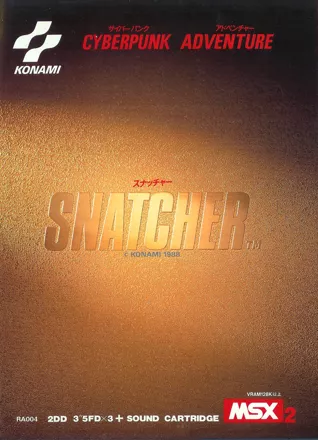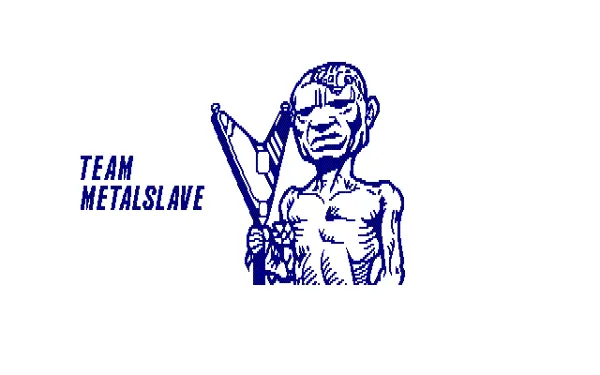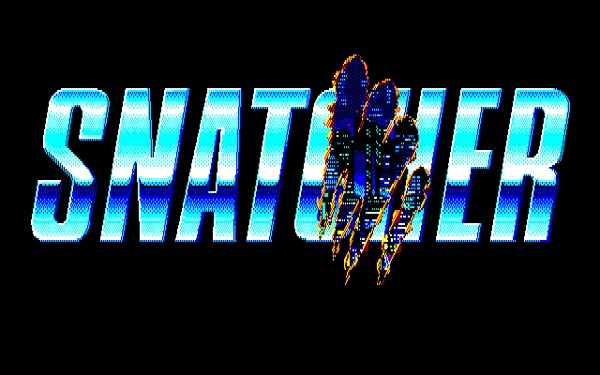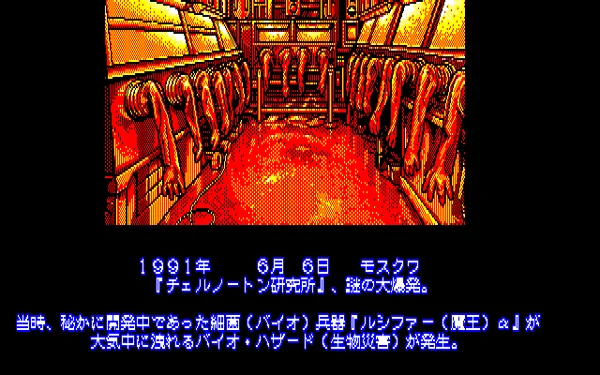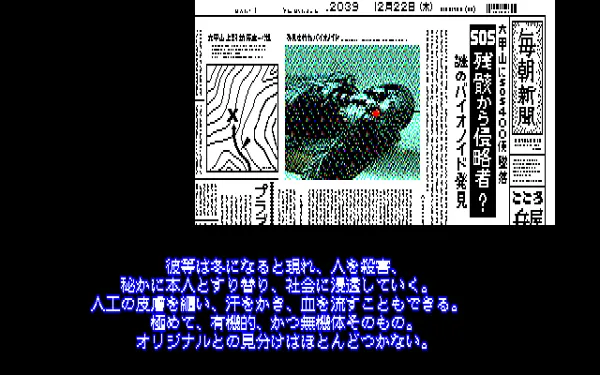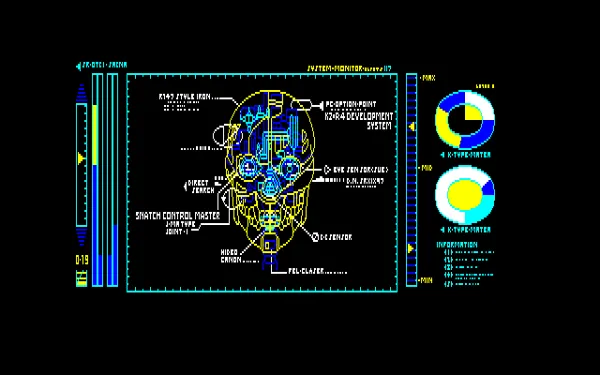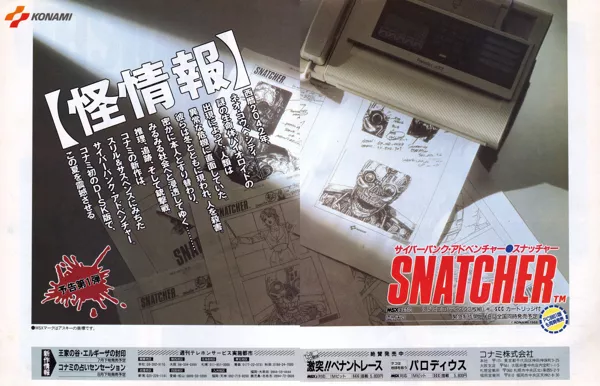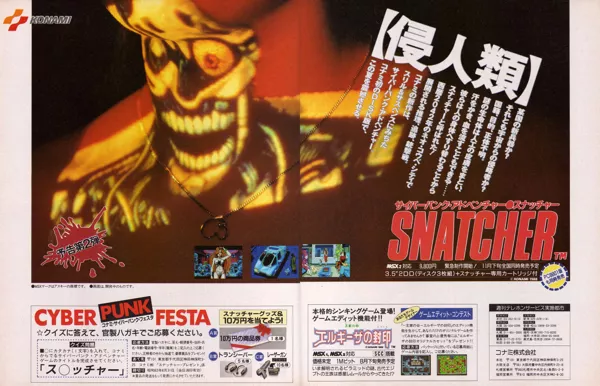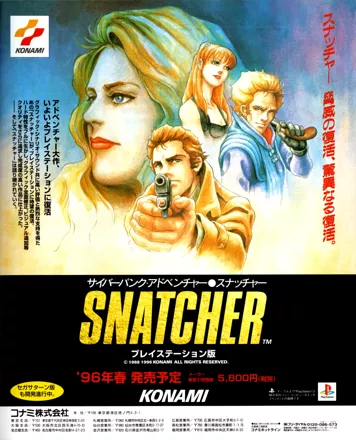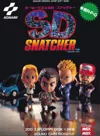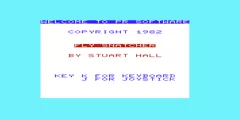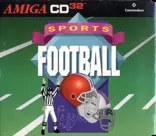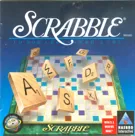Snatcher
Description official descriptions
Snatcher is set in the futuristic Neo Kobe City, a city of madness and decadence. The year is 2047 (or 2042, according to the original Japanese version). Mankind is facing its gravest crisis. A mysterious bio-roid life form has appeared. Its true nature and purpose are unknown. Is it some country's secret weapon, or an alien from another world? They appear in the winter, killing people and taking their place in society. They wear artificial skin and can sweat and even bleed. They are called "Snatchers" because they "snatch" their victims before they take their place.
A new police force, specifically trained to fight the Snatchers, has been formed. They are JUNKERs (which is deciphered as "Japanese Undercover Neuro-Kinetic Elimination Rangers" in the English version). Every time you encounter someone, a difficult question must be asked — is it a person or a snatcher?
The player takes control of Gillian Seed, one of the JUNKERs. The gameplay largely follows the structure of a Japanese-style adventure. The player uses a menu-driven interface to execute commands, which include moving between locations and interacting with the environment. Typically, every room contains objects that can be examined, leading to text descriptions and comments. Conversations occupy a large portion of the gameplay, with various topics available and a wealth of information about the game's world and characters. A few parts contain light puzzle-solving elements, though as a rule the game is almost completely devoid of puzzles.
During key moments of the narrative, the player will be prompted to participate in intense shooting sequences. The goal is usually to kill all the enemies that pop out on the screen before they are able to kill Gillian. Some of such sequences are timed, i.e. the player is required to quickly shoot before another events is triggered, leading to the protagonist's death.
Spellings
- スナッチャー - Japanese spelling
Groups +
Screenshots
Promos
Credits (PC-88 version)
65 People (46 developers, 19 thanks) · View all
| Scenario |
|
| Mechanical Design |
|
| Character Design |
|
| Character Assistant | |
| Main Program |
|
| Sub Program |
|
| Sound Effect |
|
| Music Composition |
|
| Supervisor |
|
| Chief Editor |
|
| Character Design |
|
| Character Establishment |
|
| Back Ground Establishment |
|
| Background Design |
|
| Mechanical Establishment |
|
| Mechanical Design |
|
| Planning Continuity |
|
| Picture Continuity |
|
| [ full credits ] | |
Reviews
Critics
Average score: 85% (based on 30 ratings)
Players
Average score: 3.9 out of 5 (based on 103 ratings with 2 reviews)
Better than most of its genre brethren, but does that really mean much?..
The Good
For a game involving little more than repetitive menu-cycling with an occasional meager shoot-out, Snatcher is certainly a success. It is clear that a lot of attention has been paid to its setting and plot structure, aiming to make it as little boring as it was only possible.
Of course, Snatcher wouldn't be the same without the action segments. The furious shooting releases the stress accumulated during the investigation, and although those sequences are rather simple, they are certainly fun. Unfortunately, there were very few of those sequences, but there were many situations where you expected shooting, and this alone was curiously enough to keep you in suspense.
The monotony of menu choices is somewhat broken by a few more involving tasks, such as creating a computer montage of a criminal's face based on a description given to you by a witness; guessing the name of a hospital with a broken neon sign; searching a dark room by moving a flashlight around. But even the routine menu-selecting is well-made. First of all, you always get elaborated messages from your sidekick Metal Gear. No matter what you look at, even if it is unimportant stuff, Metal will analyze it and give you a description. Usually you can select the same option several times and get a different answer every time.
The story develops just at the right speed, without giving too much of it away in the beginning, and always introducing mysteries. Already the core plot point of the game - who am I? - captures the player's attention and makes him curious. The game always presents smaller mysteries, that are tied nicely with the main plot.
The story of Snatcher is pretty good, especially when everything is explained in the end of the game and you realize how seemingly unimportant events and encounters were in fact very important. The story is built like a big puzzle, with all the pieces brought to their places only during the ending sequence. Moral problems, philosophical outputs about mankind, world-domination, love are treated with typical Japanese clueless naivety, but not without passion.
In addition, Snatcher has great comic-style graphics and a memorable soundtrack with some atmospheric background tunes.
The Bad
Snatcher is a Japanese adventure. To put it bluntly, if there's anything wrong with it, it's this. The lack of movement, control, and general involvement is aggravating. There is no physical movement whatsoever in the game: the adventure mode allows you only to select menu choices, and in the shooting mode, all you can do is aim your gun and shoot. I'd be really glad to see some movement in the game: for example, navigating the turbocycle myself, or actually playing those nerve-tickling movie sequences. At least a point-and-click interface would have helped. Unfortunately, there is nothing of the kind. You are not physically present in the game world, and that is a serious flaw for gameplay mechanics.
Like most games of its genre, there is a common and very annoying problem of "triggering" in Snatcher. New menu choices will only pop out when you have already browsed through all other choices, even though those choices didn't bring anything to the development of the plot. That turns a good deal of the gameplay into impatient selecting of all menu choices, examining and investigating everything that bears no importance to the actual game events and is turned mandatory because it inexplicably triggers new choices.
Snatcher (and its very similar follow-up Policenauts) is not really concerned with letting you explore its world. Not all Japanese adventures are fully linear; some, at least, allow you to move from location to location at your own pace. Granted, both games pay attention to detail and their locations are interesting, but this linearity can get stifling.
Most of the dialogues are okay, but some of them are surprisingly weak and can ruin the game for some sensitive players. The writing suffers from "Kojima-syndrome", with some pointless moralizing and semi-educational material that is too obviously presented - something anyone who has played a Metal Gear Solid game is familiar with.
Kojima loves movies, and most of his game plots are a mishmash of different themes he had drawn from popular blockbusters, sci-fi or otherwise. Snatcher is no exception, as the title and the entire premise not-so-subtly imply. The plot of Snatcher is therefore "gimmicky", compiled out of liberally used borrowed material. It's also very Japanese, so expect tiring verbosity and sexual innuendo at every corner.
As opposed to some unnecessary descriptions and corny dialogue, I'd much prefer to see more action sequences in Snatcher. There are, in fact, only three major shooting sequences in the whole game - one in each act. They are also way too easy, thus turning the entire game into a straightforward affair devoid of any real challenge.
The Bottom Line
Snatcher is clearly better than the vast majority of Japanese adventures, but that still doesn't make it a particularly compelling game. Basically, this is a flashy, yet derivative story accompanied by bits of restricted gameplay. The game evokes sympathy thanks to the evident passion of its creator; but as far as adventure games go, it is very primitive and lightweight, and can only be compared to the similarly simplified Rise of the Dragon.
SEGA CD · by Unicorn Lynx (181658) · 2019
Easily the best game I have ever played.
The Good
Snatcher is a game that's been released on a total of six systems over the course of eight years. All but one of those releases were in Japan, and that one was for the Sega CD, in late 1994. American and European gamers were lucky to get the game at all, but when the game came over with almost all of the gore and even some of the nudity intact, the gaming community was ecstatic. No one, at least in America, had ever seen a game like Snatcher, and thanks to the fact that Policenauts, Snatcher's unofficial "prequel", hasn't been and probably never will be released in America, we'll probably never see a game like it again. It's a game that never fails to keep you on your toes. It manages to genuinely scare you, even though it never actively tries to. At one point I would even refuse to play the game at night, because as I would walk from my basement (where my Sega CD was) up to my room to go to bed, I would keep looking over my shoulder to check if a snatcher was sneaking up on me. When a game that's running on a meager 16-bit machine with an onscreen graphics palette of only 112 colors manages to scare you even after you've turned it off, that's the mark of something truly powerful. It could also be the mark of a paranoid coward, but I'd say it's a combination of both. Everything about the game is perfect. The graphics are in the style you'd find if you picked up an issue of Shonen Jump- Japanese comic books, or Manga. They're colorful, detailed, and even though they almost never move, they're too good for you to care. The sound is excellent. The voice acting is truly excellent, and although the actors seem to be overplaying their roles at times, we have to remember that decent voice acting at all in a pre-PlayStation, cinematic, Metal Gear Solid era was pretty rare, and probably nonexistent to begin with. The music is excellently composed, and the right tunes play at the right times to get your heart truly racing. The game structure is a massive menu with a few shooting sequences thrown into the mix. It's the most entertaining menu ever made, in my opinion. All the choices one would want to make are there, and it rarely feels limiting. The shooting sequences are far and few between, and this is a good thing, because once you start getting into the game you'll want no interruption from your investigation. The storyline is top-notch- there are just enough plot twists and character developments to make it truly great. Luckily, there's no way to die in Snatcher. If you get killed during a shooting sequence, you push a button and attempt it again. Clumsy gamers like me appreciated the fact that you have infinite lives. All in all, there is much to love in Snatcher.
The Bad
There's very little wrong with Snatcher, but no game is perfect. The translation gets a little thick on the cheese at times, and occasionally borders on "Engrish", but it can be forgiven as this game was created in an era where little thought was given to a translation that did more than not be Japanese. Another small problem I have (and this is an extremely minor quip) is that the art direction is relatively inconsistent. Gillian (the main character) may look more round-faced and boyish in one scene, and in another his face will be hard-nosed and jaded. It doesn't seem that they created model sheets for the characters in this game, and it shows. Still, in a game with so much good you can't really dwell on the bad, it can be forgiven.
The Bottom Line
Although Snatcher sounds massively boring- it's a menu with a gun- nothing could be farther from the truth. The voice acting, graphics, music, and excellent storyline make it not only the best game of the Sega CD, but the best game of 1994, the best game of the '90s, and the best game ever made. It's a terrible shame that virtually no one outside of Japan knows about it, because had it gotten the exposure it deserved worldwide, it would have no doubt become ingrained in the hearts of gamers; it would be many people's favorite game, and much more. On the bright side, we're lucky to have the game at all, even though its poor sales (blamed on its limited distribution) eliminated any hope of getting Policenauts released outside Japan. Still, we must thank Hideo Kojima and the entire team at Konami for producing an excellent game, and it can be said without hesitation that this is required playing for any video gamer.
SEGA CD · by zoinknoise (81) · 2005
Trivia
English translation differences
Some dates, names and characters in the Sega CD English translation were modified from the original PC-88, MSX2 and PC Engine versions (which were the only ones directly supervised by Hideo Kojima):
- The Lucifer Alpha Incident ("The Catastrophe") was moved from 1991 to 1996.
- The Sega CD game is taking place in Neo Kobe, 2047 — instead of 2042.
- JUNKER's meaning was changed from "Judgement Uninfected Naked Kind and Execute Ranger" to "Japanese Undercover Neuro-Kinetic Elimination Ranger".
- Gaudi, JUNKER's database computer, was renamed to Jordan — an ill-advised change, since Kojima later paid homage to Snatcher in Metal Gear Solid 4: Guns of the Patriots by naming Otacon's computer cluster "Gaudi".
- Neo Kobe's network computer, which was originally called Alphaville (a reference to the 1965 French film, as well as the German synth-pop band), became Alpha-One.
- Likewise, Joy Division, the black market store, was changed to Plato's Cavern out of possible copyright infringement with the famous English rock band.
- Catherine Gibson, Jean-Jacques Gibson's orphaned daughter, was a 14-year-old teenager in the Japanese versions. She is 18 and has a rather husky voice in the English port.
English version Konami references
While the original Japanese version of Snatcher had many popular culture references, they were largely replaced by characters from Konami games and other allusions to that company.
One of the places Gillian and Metal Gear have to investigate is a nightclub in Neo Kobe called "Outer Heaven", named for the fortress of the villains in the first
The logo of the black market in New Kobe is the same as Konami's logo. If you examine it twice, Gillian will say: "Hey, isn't that a Konami logo?", and Metal Gear will answer: " I guess they all work for the same guys..."
References to the game's creator Hideo Kojima are also present. When using the information database Jordan in Junker HQ, you can type in "Kojima" after loading the ID file. Jordan will give you some information about Hideo Kojima, the creator of this game - when he was born, what he likes and dislikes, etc. In the end of the file, a message appears: "Warning! Snatchers have crossed the sea!"
English version puzzles
spoiler alert The English version of this game makes a little less sense then you would expect when it comes to the riddles which requires you to input an answer in alphabet. For example, the queens hospital answer needs to be written in kana (kui-n) which was at that point interpreted as QUEEN in English alphabet, because here you could only input 4 kana characters. For English players, just "queen" in alphabet would have made this too easy, so they added the extra letter "s" to make the riddle more challenging.
Also, the riddle with Benson's name had a different purpose because Japanese kana characters are spoken phonetically. The "n" then would be a single loose character. There is also an amazingly lot more violence in the Japanese versions of these games! Also, try to phone numbers you are not yet supposed to know or to input answers you are not supposed to know. Metal will make a subtle remark about it.
Sega CD version cover
The blue stripes on the cover are different from all other Sega CD games. The reason? Simply a mix-up with the art files that wasn't caught until after they were printed. Nothing planned, but it was never fixed.
Version differences
The original computer versions of Snatcher (PC-88 and MSX) contained two acts of the story, ending in a cliffhanger that was supposed to lead into the sequel. When it became obvious that a sequel wouldn't be made, a third act was written and incorporated in all subsequent versions, wrapping up the story.
The Japanese-only PC Engine (TurboGrafx) CD was the first to add the third act; along with streamlines interface, audio CD music, and enhanced visuals, it served as a prototype for all later versions. The only English release of the game, the Sega CD one, released exclusively in the West, is mostly identical to the PC Engine CD version graphically and sound-wise. It censors a few scenes with excessive gore and nudity, but also adds more interactivity and additional scenes to the third act.
The Japanese-only Playstation and Saturn versions feature updated graphics, a new soundtrack, and a new animated intro with CG graphics. Both largely retain the censorship of the Sega CD version, though the Saturn version is the less censored of the two.
Floppy Disk
During the PC versions' development, Hideo Kojima wanted the floppy disks to be coated with a chemical that would give off the scent of blood when heated in the computer. The idea was to give the player's environment "the stench of a murder scene". Perhaps wisely, Konami executives vetoed the idea.
Awards
- Electronic Gaming Monthly
- November 1997 (Issue 100) - ranked #69 (Best 100 Games of All Time) (Sega CD version)
- GameFan's Megawards
- 1994 (Vol.3, Iss.1) - Best Sega CD Adventure/RPG Game of the Year
Information also contributed by Big John WV, Kevin O'Donohue, Satoshi Kunsai, tante totti, and Vance
Analytics
Upgrade to MobyPro to view research rankings and price history! (when applicable)
Related Sites +
-
Hardcore Gaming 101
Article on the game and regional differences with photos -
JUNKER HQ
This fansite is dedicated to the games produced and/or designed by Hideo Kojima and contains all kinds of trivia, artwork, plot summaries, discussion forums and more. -
RetrowareTV - Snatcher Review
Video review of Snatcher and its contribution to the cyberpunk genre and the history of video games -
The Policenauts Paradise and Snatcher Shrine
A site dedicated to Hideo Kojima's games "Snatcher" and "Policenauts" -
The Snatcher Experience
Site with lots of information about the game plus links to most other Snatcher sites. -
Wikipedia: Snatcher
Information about Snatcher at Wikipedia
Identifiers +
Contribute
Are you familiar with this game? Help document and preserve this entry in video game history! If your contribution is approved, you will earn points and be credited as a contributor.
Contributors to this Entry
Game added by Jessie Cook.
PC-88 added by Terok Nor. MSX, TurboGrafx CD added by Unicorn Lynx. PlayStation, SEGA Saturn added by Cochonou.
Additional contributors: Unicorn Lynx, Kaminari, Alaka, Johnny Undaunted, ケヴィン, Deathdragon Dragonia, DreinIX, —-, Harmony♡, Vincent Kinian.
Game added October 18, 2002. Last modified June 7, 2024.


